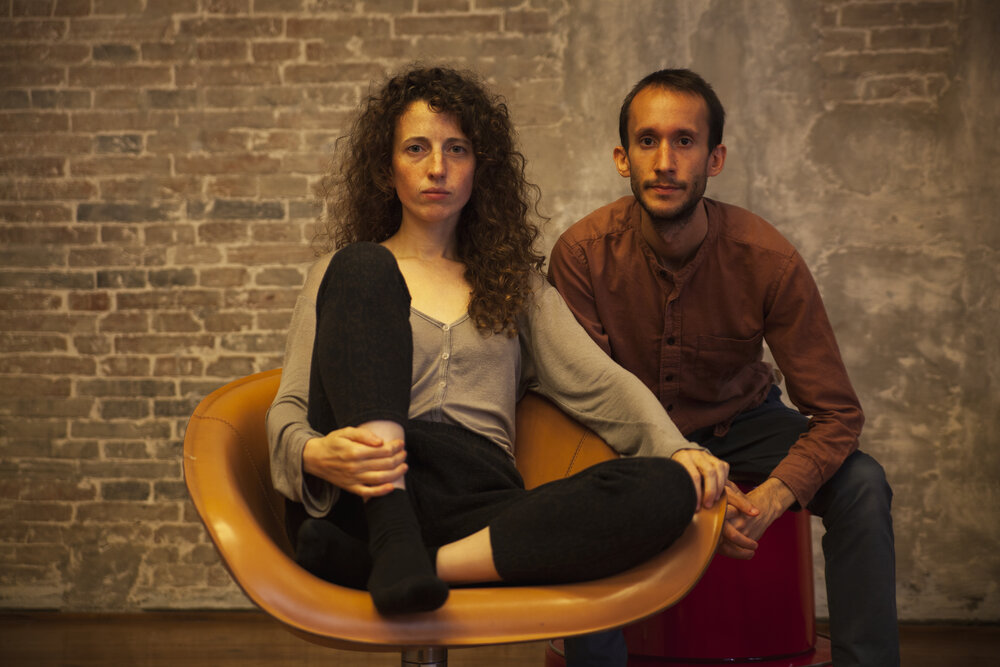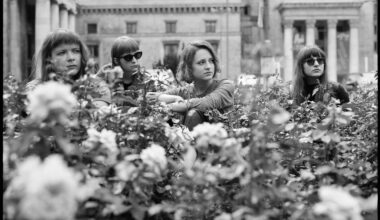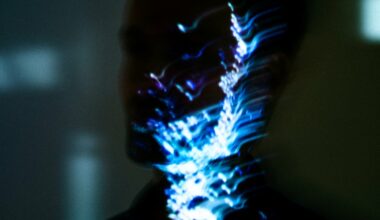Passepartout Duo presents “Daylighting”, their latest release out on June 25th, 2021. The duo, composed of Nicoletta Favari on keyboards/piano and Christopher Salvito on percussion, has been traveling around the world for the past few years for their musical projects that oscillate between their discographic works, multi-disciplinary collaborations, and performance.
In their latest release “Daylighting”, the duo continues to explore their fascination with building personalized musical instruments. A new suite of electronic devices that functionally integrate textiles and synthesizer circuits accompanies the two musicians’ familiar set of small portable percussion. These strange machines aesthetically recall imaginary landscapes connected to a trip to the Meili Snow Mountains in China, and inspired the seven tracks of the album.
FACTS
1. everybody loves drums
2. art isn’t easy
3. I do not know whether I was then a man dreaming I was a butterfly, or whether I am now a butterfly dreaming I am a man
QUESTIONS
1. What is the biggest inspiration for your music?
To us inspiration is those external forces the drive your work – something which gives you permission start, to continue or to be resilient, and pushes you to stay creative. In that sense, it’s the places we go and the people we meet who have had the most influence.
2. How and when did you get into making music?
We have grown up studying music on different instruments (Nico only on piano, Chris on various instruments then finally percussion) and we think that the determination and patience that learning and practicing an instrument from being a kid to being an adult really shapes who you are. In no way music came naturally to us, but around the age of 17-18 years we both had encounters and discoveries that made us consciously decide that living as a musician was the most honest choice we could make for our future selves. From there, the path we have taken since we met 6 years ago has spread out our artistic practice with composition, and much more than we could ever have imagined.
3. What are 5 of your favourite albums of all time?
Some choices:
Made Possible by The Bad Plus
Music for Nine Post Cards by Hiroshi Yoshimura
The Expanding Universe by Laurie Spiegel
Pet Sounds by The Beach Boys
Music in Twelve Parts by Philip Glass
4. What do you associate with Berlin?
Years ago, our two month stint in Berlin was a classic combination of chaotic WG life, midnight kebab, and a constant discovery of new music and art in the city.
5. What’s your favourite place in your town?
Nico comes from the countryside and there we have a favorite spot, with a special view of the mountains, very isolated, a bit scrappy.
6. If there was no music in the world, what would you do instead?
Chris would probably be working with design and Nico with language translation.
7. What was the last record/music you bought?
Matthias Engelke – Resonant Dowland
8. Who would you most like to collaborate with?
Maybe choreographer Anne Teresa De Keersmaeker. Not that there is any chance for us really, but we admire all of her work so much since our time in Brussels, and we so strongly feel the energy on the stage of her company’s performances – we are sure it would be an incredible experience to work with her.
9. What was your best gig (as performer or spectator)?
A performance of Einstein on the Beach at BAM, as audience.
As performers we are not sure we have a favorite gig yet, performing can be very stressful! There have been some beautifully unique experiences that have come from performing: Havana Contemporary Music Festival in Cuba, Summartónar in the Faroe Islands, the random roof of a building in Uzbekistan, or driving clear across Latvia for a concert in Daugavpils – those are some of our favorite times performing.
10. How important is technology to your creative process?
It’s very important! We’re going to take technology very broadly here – perhaps invented DIY instruments which aren’t electronic, or DIY synthesizers that feature circuits from the past aren’t cutting edge – but they have had a massive influence on the way we create music. A lot of the time, everything starts from the instruments themselves, and in a sense the restrictions proposed by the instruments are an influence of their own technological features. Working with electronics has really changed us in terms of creativity, the portability of our instrumentation, and has give us an eye toward the future in our work too.
11. Do you have siblings and how do they feel about your career/art?
We both have siblings, and everyone is quite supportive. That said, having honest conversations about life as an artist with non-artists is really difficult! Sometimes a life in music, especially ours, comes across as this very comfortable and almost hedonistic thing – but it’s totally the opposite of that. In reality, you’re constantly in a state of fighting the world. A year and a half ago we were in Hangzhou at the fine arts school there, and someone mentioned to us that the school’s motto is: “Fight for Art”. At first we thought, well that’s a bit aggressive, isn’t it? Art isn’t about fighting – months later we kept thinking that a life in the arts is indeed always a fight.


